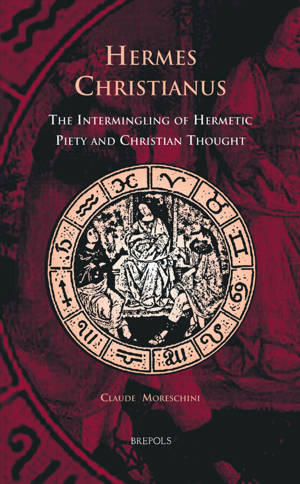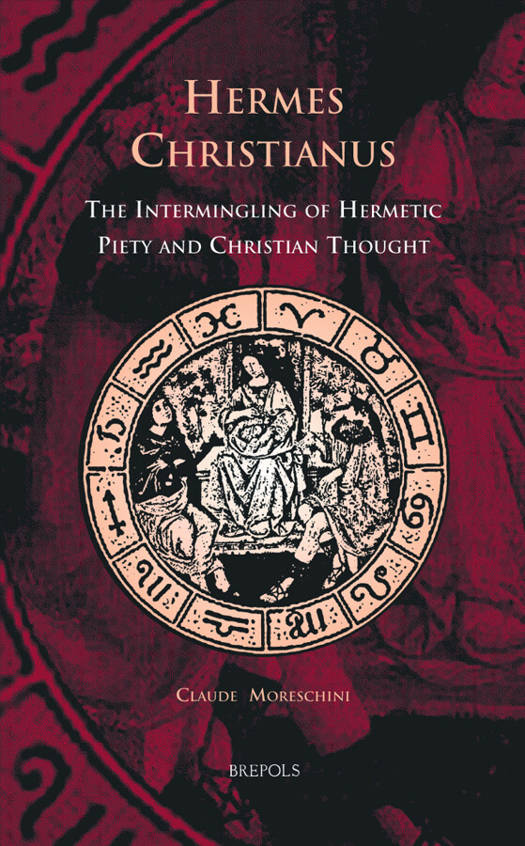
Bedankt voor het vertrouwen het afgelopen jaar! Om jou te bedanken bieden we GRATIS verzending (in België) aan op alles gedurende de hele maand januari.
- Afhalen na 1 uur in een winkel met voorraad
- Gratis thuislevering in België vanaf € 30
- Ruim aanbod met 7 miljoen producten
Bedankt voor het vertrouwen het afgelopen jaar! Om jou te bedanken bieden we GRATIS verzending (in België) aan op alles gedurende de hele maand januari.
- Afhalen na 1 uur in een winkel met voorraad
- Gratis thuislevering in België vanaf € 30
- Ruim aanbod met 7 miljoen producten
Zoeken
Cursor 08 Hermes Christianus, Moreschini
The Intermingling of Hermetic Piety and Christian Thought
Claudio Moreschini
Hardcover | Engels
€ 100,70
+ 201 punten
Omschrijving
Hermetic theosophy, originally an offspring of Egyptian religion, spread throughout the ancient world from the Hellenistic age onwards and was welcomed by Christianity in Late Antiquity. Cultivated people in a Christian milieu were convinced that Hermetic piety and religion were the preparation, expressed by heathen imagery, of their own faith: Hermes, a wise and pious philosopher in Egypt in the time of Moses, received (so it was thought) the same revelation which would be manifested 1,000 years later by Christ. At the end of the third century AD, this belief did not perish with the end of the Roman Empire; rather, it was taken up and explored during the French Renaissance of the twelfth century. In the fifteenth century, Italian humanism, supported by the rediscovery of Greek language and literature, promoted a fresh new evaluation of the ancient Hermetic texts which continued to be considered and studied as pre-Christian documents. In the sixteenth century, new interpretations of Christian Hermetism were explored until this connection between pagan and Christian was increasingly criticized by scholars who argued that Hermetism was neither as ancient as was thought nor as close to Christianity. The theory was abandoned in scientific milieux from the seventeenth century onwards, whereas Hermetic theosophy, on the contrary, survived in esoteric circles.
Specificaties
Betrokkenen
- Auteur(s):
- Vertaler(s):
- Uitgeverij:
Inhoud
- Aantal bladzijden:
- 306
- Taal:
- Engels
Eigenschappen
- Productcode (EAN):
- 9782503529608
- Verschijningsdatum:
- 25/10/2012
- Uitvoering:
- Hardcover
- Formaat:
- Genaaid
- Afmetingen:
- 163 mm x 239 mm
- Gewicht:
- 657 g

Alleen bij Standaard Boekhandel
+ 201 punten op je klantenkaart van Standaard Boekhandel
Beoordelingen
We publiceren alleen reviews die voldoen aan de voorwaarden voor reviews. Bekijk onze voorwaarden voor reviews.









